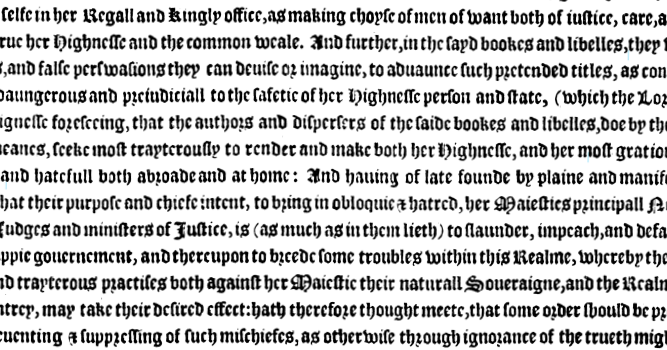DRAFT – TAPAS links coming soon! In 16th century England, proclamations were circulated to make the public aware of evolving laws and rules surrounding everything from trade, laws about what one could wear (sumptuary laws), plague edicts, religious practices, as
By the Queene: Proclamations

